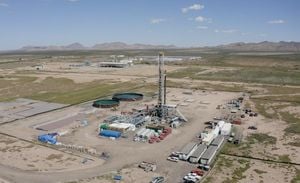Baku, Azerbaijan has become the epicenter of global climate cooperation as, during the recent COP29 summit, world leaders struck a monumental deal, agreeing to commit $300 billion annually to climate finance aimed at assisting developing nations. This commitment, planned to be ramped up to $1.3 trillion by 2035, marks the first substantial financial pledge of its kind and promises to deliver necessary funds to those nations grappling with the dire consequences of climate change.
This agreement, finalized during overnight discussions on November 25, 2024, suggests significant political will among rich nations to allocate more substantial resources to combat climate change-induced effects, including extreme weather events, rising sea levels, and increasing temperatures. According to U.N. Secretary-General António Guterres, this commitment could serve as the “base to build on” for future climate initiatives.
Critics, nonetheless, have raised concerns about whether this level of funding will be sufficient to meet the overwhelming challenges climate-impacted countries face. Observers worry the goals established may not adequately reflect the urgency of the situation. The Climate Finance Pledge aims to assist countries globally, particularly those from the Global South, which are among the hardest hit by climate change.
The ambient sentiment leading up to the negotiations had been one of cautious optimism as nations gathered to focus on financing the climate fight. This year's conference, attended by representatives from various sectors including government and NGOs, was pivotal as many called for urgent actions, highlighting the necessity for more comprehensive responses to environmental crises.
Proponents claim the $300 billion promise is triple what developed countries had previously committed. The terms of the deal outline the necessity for these countries to ramp up their financial contributions progressively, with richer nations expected to deliver significant amounts through direct funding as well as public and private investments.
The fine print does include mechanisms aimed at ensuring efficiency and transparency for how these funds will be managed and utilized. Observers point out this transparency will be key to building trust among nations, particularly those who have felt let down by promises made at previous summit meetings.
Interestingly, the deal doesn't just focus on funding the adaptation strategies but also emphasizes the necessity of financing for mitigation efforts, which aim to reduce the Number of greenhouse gas emissions. This comprehensive approach is welcomed as it seeks to address both current needs and future risks faced by vulnerable countries.
During the summit, which saw extensive discussions on other related topics, there was strong pressure from environmental groups and activists to create compelling solutions for the climate crisis. Groups participated actively, holding rallies and protests outside the summit hall, demanding concrete actions and questioning the fidelity of promises previously made by industrialized nations.
One of the gripping moments of COP29 came when formal talks bloomed between various stakeholders on how to prevent the loss of biodiversity and promote sustainable energy alternatives. A report last week underscored the potential role of clean technology, potentially leveraged through this funding, to boost local economies and transform energy systems.
With this pledge firmly established, nations now face the pressing task of ensuring accountability and effective allocation of these funds. Guterres highlighted the urgency of acting not just to secure prosperity but to safeguard humanity’s future: “Every bit of preparation – every policy, every plan – is the difference between life and death for millions of people around the world,” he stated emphatically.
Notably, challenges still loom as countries navigate varied interests and economic pressures on their home fronts. The outcome of these negotiations could set the stage for dialogues at future summits as stakeholder interests evolve and adapt.
Meanwhile, U.N. climate change executive secretary Simon Stiell reinforced the importance of action during the summit’s opening, urging nations not to squander time. “Let’s cut the theatrics and get down to real business,” he urged delegates, echoing concerns about the dire need for actionable solutions amid the climate crisis narrative.
The $300 billion climate finance commitment stands as both a beacon of hope and a reminder of the obligations countries owe to those suffering the most from climate change happenings. The decisions made at COP29 may prove pivotal as nations tread the challenging path toward meaningful climate action at large.
With COP29 winding down, the focus now shifts toward implementing the promises made and distinguishing this outcome from the countless previous agreements over the years. For many activists and climate experts, the real test will be translating this commitment from words to action over the coming years and ensuring it leads to genuine impacts on the ground.
Many are hopeful this historic deal can inspire lasting change and signify the beginning of more ambitious efforts to confront climate challenges.



